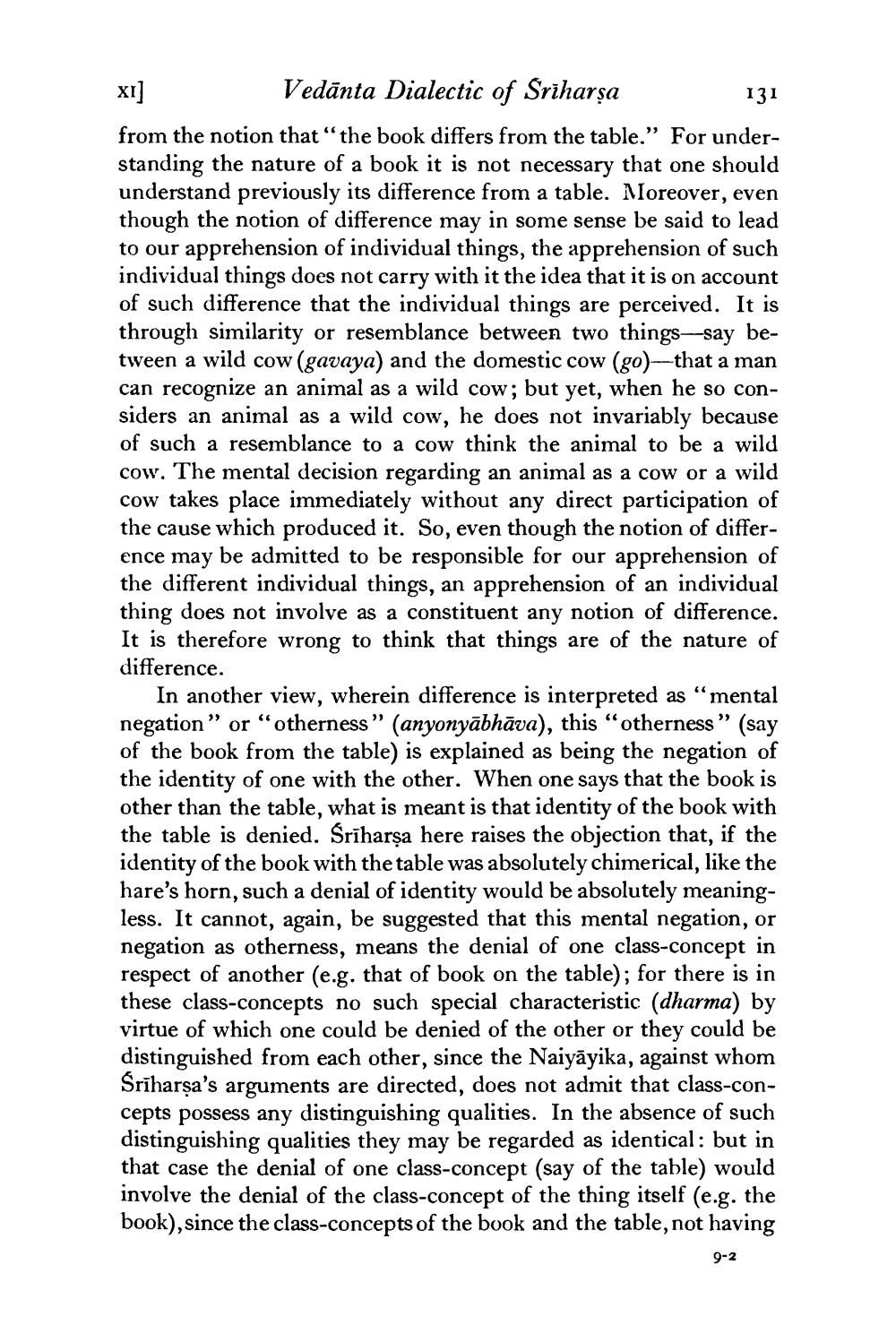________________
XI Vedānta Dialectic of Sriharşa
131 from the notion that “the book differs from the table.” For understanding the nature of a book it is not necessary that one should understand previously its difference from a table. Moreover, even though the notion of difference may in some sense be said to lead to our apprehension of individual things, the apprehension of such individual things does not carry with it the idea that it is on account of such difference that the individual things are perceived. It is through similarity or resemblance between two things-say between a wild cow (gavaya) and the domestic cow (go)-that a man can recognize an animal as a wild cow; but yet, when he so considers an animal as a wild cow, he does not invariably because of such a resemblance to a cow think the animal to be a wild cow. The mental decision regarding an animal as a cow or a wild cow takes place immediately without any direct participation of the cause which produced it. So, even though the notion of difference may be admitted to be responsible for our apprehension of the different individual things, an apprehension of an individual thing does not involve as a constituent any notion of difference. It is therefore wrong to think that things are of the nature of difference.
In another view, wherein difference is interpreted as “mental negation" or "otherness" (anyonyābhāva), this “otherness" (say of the book from the table) is explained as being the negation of the identity of one with the other. When one says that the book is other than the table, what is meant is that identity of the book with the table is denied. Srīharsa here raises the objection that, if the identity of the book with the table was absolutely chimerical, like the hare's horn, such a denial of identity would be absolutely meaningless. It cannot, again, be suggested that this mental negation, or negation as otherness, means the denial of one class-concept in respect of another (e.g. that of book on the table); for there is in these class-concepts no such special characteristic (dharma) by virtue of which one could be denied of the other or they could be distinguished from each other, since the Naiyāyika, against whom Sriharsa's arguments are directed, does not admit that class-concepts possess any distinguishing qualities. In the absence of such distinguishing qualities they may be regarded as identical: but in that case the denial of one class-concept (say of the table) would involve the denial of the class-concept of the thing itself (e.g. the book), since the class-concepts of the book and the table, not having
9-2




